Note: This email will be truncated because it contains many images from the scene. So you will have to click on “View entire message” to check it out!
Before anything, I’ll invite you to just watch the entire scene with no context and simply ask yourself how this scene makes you feel. Don’t analyse it for now.
This is an extract from the film A Prophet by Jacques Audiard. Sorry about the lack of subtitles, but I don’t think it matters in this scene.
Personally, when I watch this scene, I feel a great sense of disorientation, of loss and apprehension and somehow yearning. Let’s look at what happens exactly to generate this strong mood and emotions.
The scene starts on our protagonist carefully folding this little bank note, giving the item a lot of importance somehow. It’s the first thing we see. The camera is positioned exactly where the character’s eyes would be, with a lens choice that creates a narrow focus, simulating human vision.
We are literally dropped into someone’s POV. It couldn’t be more realistic. The camera is also handheld, shaking with the vehicle. The juxtaposition of handcuffs with the dirty shoes and floor paints a strong sense of the type of person we are connecting with.
The music is yearning and emotional as he stuffs this bank note into his rotten shoes, while sound design is rough, loud.
Despite our guy being injured, scruffy, and clearly in big trouble, there’s an air of control about him. The low angle of the camera and the music reinforces this.
The composition gets really unbalanced, emphasising the cage. He literally looks ahead, and all there is ahead of him, is a rusty grey cage. Quite a metaphor. But still, he seems determined. We know nothing about this man, but we empathise.
Then we switch to his strict POV, through the fence, with jump cuts, giving a sense of time ellipsis, this is a long journey.
Cages everywhere, darkening men’s faces. Tough-looking men. This is a world of unknown, a grim world. Shadowy, smileless, all we get are glimpses—nothing more.
After another ellipsis we experience the outside world. Framing is tight, on a long lens. Barely visible, covered with shadows.
Literally to the point where we can’t see it at all. The music emphasises the yearning for freedom already, the sensation of something lost.
This is contrasted by having these sudden shots, right over the protagonist’s shoulder. As if he is, breathing the light itself one last time… Looking for redemption maybe?
And the camera moves in, emphasising his emotion and we somehow feel for him, we are invited in. The music and the way the director gently introduces us, makes this guy sympathetic somehow.
The contemplation continues, still hacked and jarred by jump cuts, still un-comfy and suffocating.
The appearance of the French flag imparts a strong sense of identity and symbolism to the film. This symbolism might be more nuanced for non-French audiences, but the character, a beur (a French person of Maghreb origin), instantly evokes a myriad of questions about identity and the uniquely French issues at play.
We then cut into what looks like a prison. It’s bare, it’s unglamorous. The colour palette is cold, and highly uncomfortable. The protagonist is off the ‘points of interest’ in photographic composition (see below)
Dead centre, on a visual point of weakness. The cop if anything is more powerful visually, covering him slightly, dressed, taller, brighter. Our hero is also standing on a cross, like a target, while the men wear gloves. The room is bare, dehumanised, but the music keeps our connection tight.
All these framings are unusual and uncomfortable. We can never quite see people’s faces clearly, discover them. It’s a world of strangers, barked orders…
A dehumanised, powerless world. The hero obeys without making a fuss though.
This type of framing on the cop gives him an enormous sense of power, yet we can’t see his face, his eyes, his humanity. It’s just a guard amongst others, another tough guy. It doesn’t matter anymore.
The hero is asked to cough so they can check his anus, this shot puts a lot of emphasis on the idea of violation. As always through the scene, the framing emphasises the hero’s POV, although here his entire head is cropped. He is just a naked body now.
Behind, his miserable shoes, the only remain of his previous identity.
We get the ‘payment’ for the banknote from the start of the scene. His precious little secret. Nothing gets past these men, and while our hero might have been a tough guy outside (…)
(…) Now, he is nothing but another naked body.
The actor’s emotion is nice here. Just enough to make us feel for him, while retaining some sort of mysterious strength, despite everything.
The scene finishes with the cop casually throwing away his rotten shoes, all that remained of his previous identity.
***
At first glance, this scene might seem uneventful, yet it’s highly evocative. Music is crucial, shaping our perception of the character’s yearning and resilience. As the world turns increasingly oppressive, stripping him of humanity, the music creates a connection, instilling a sense of enigma and dignified tension. We’re left longing to discover his fate.
I like how all is conveyed visually, almost no dialogue. The camera work is handheld, delicate, it looks very realistic and yet, the compositions are cleverly jarring. The colour palettes are consistent, the mood is set. Nothing is there by chance, this is very meticulous.
It’s one of those scenes that looks extremely simple but is painterly in its elegance. If you looked at the script, you could shoot it in many many ways. It’s just a guy traveling to the prison and getting checked in, but it takes almost 90 seconds and works powerfully on our subconscious.
***
As always, share your thoughts on the scene and suggest films for review!
To check out the film: A Prophet by Jacques Audiard.




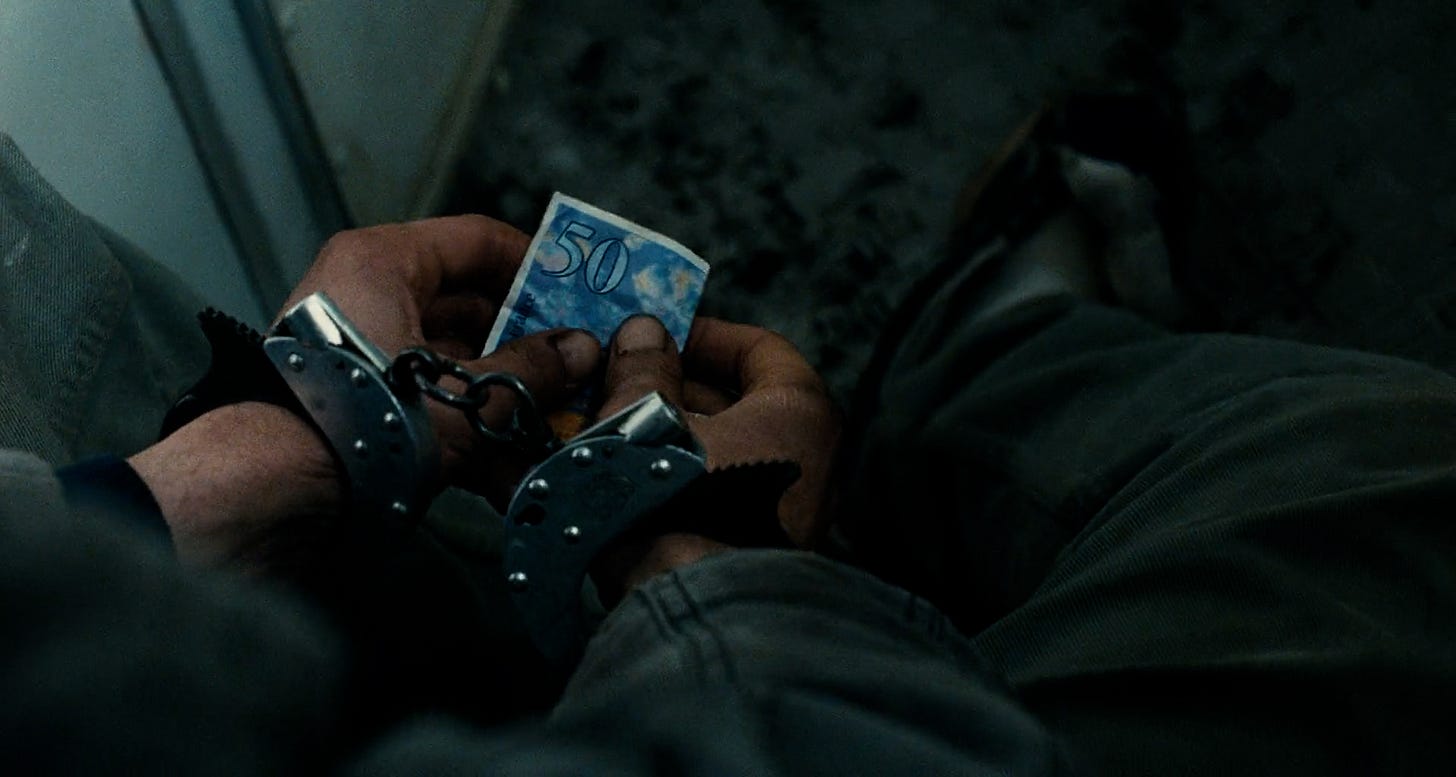
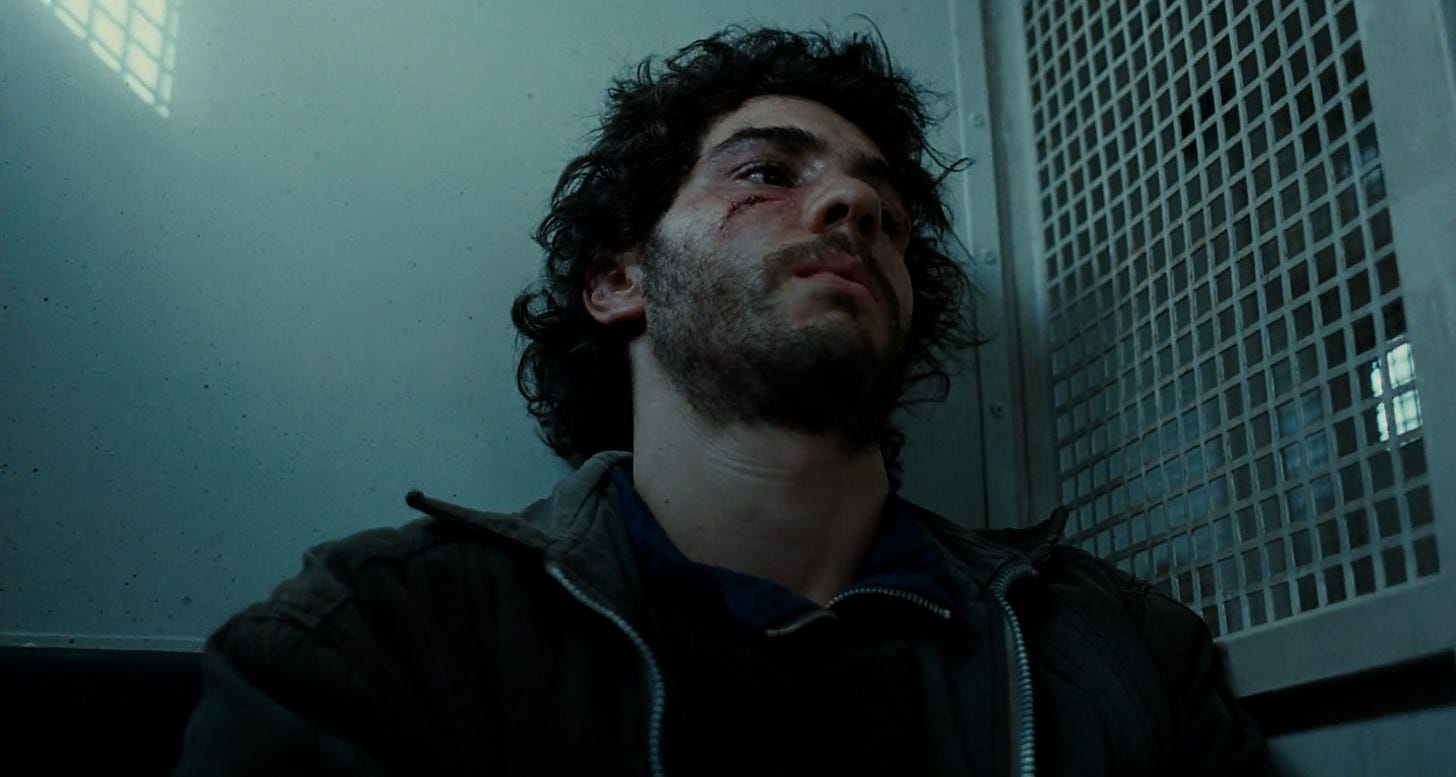
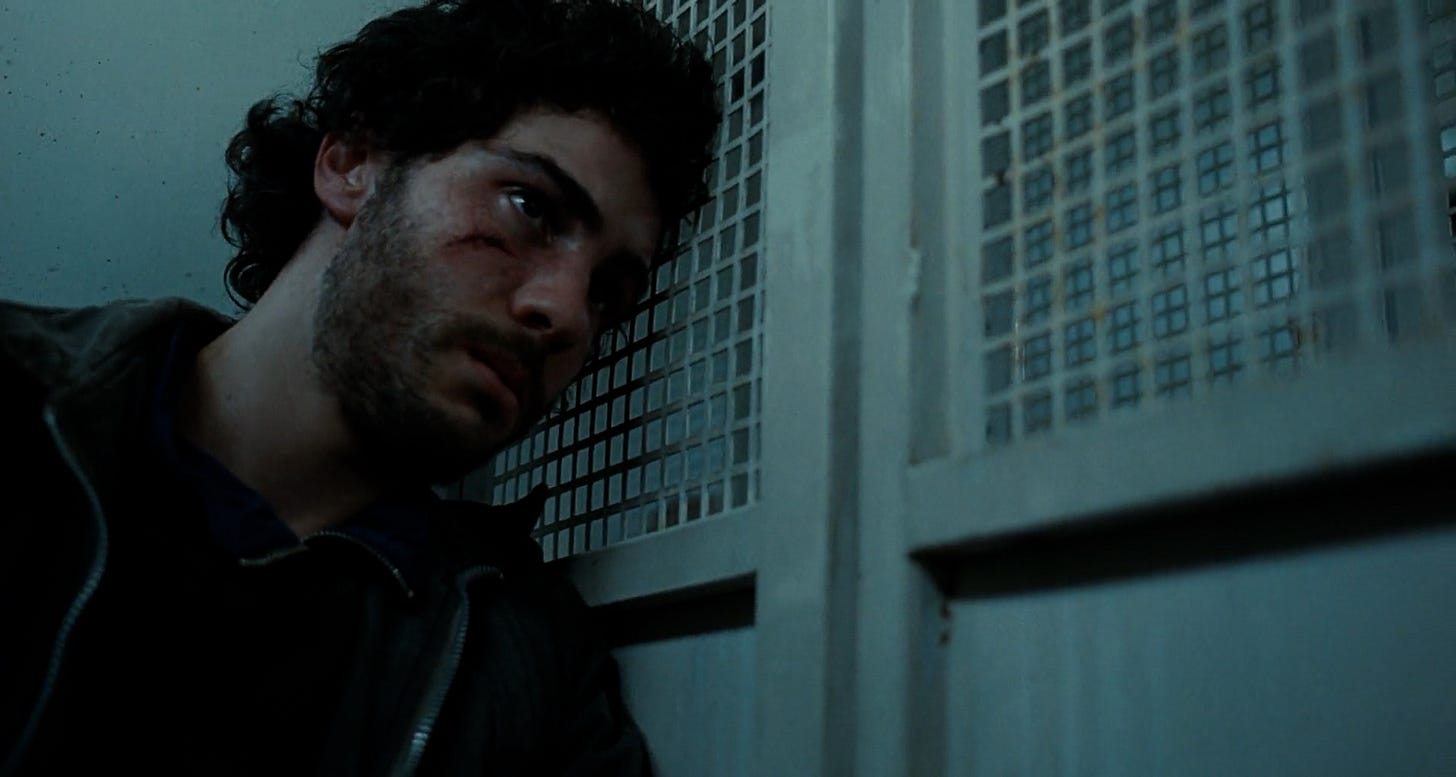
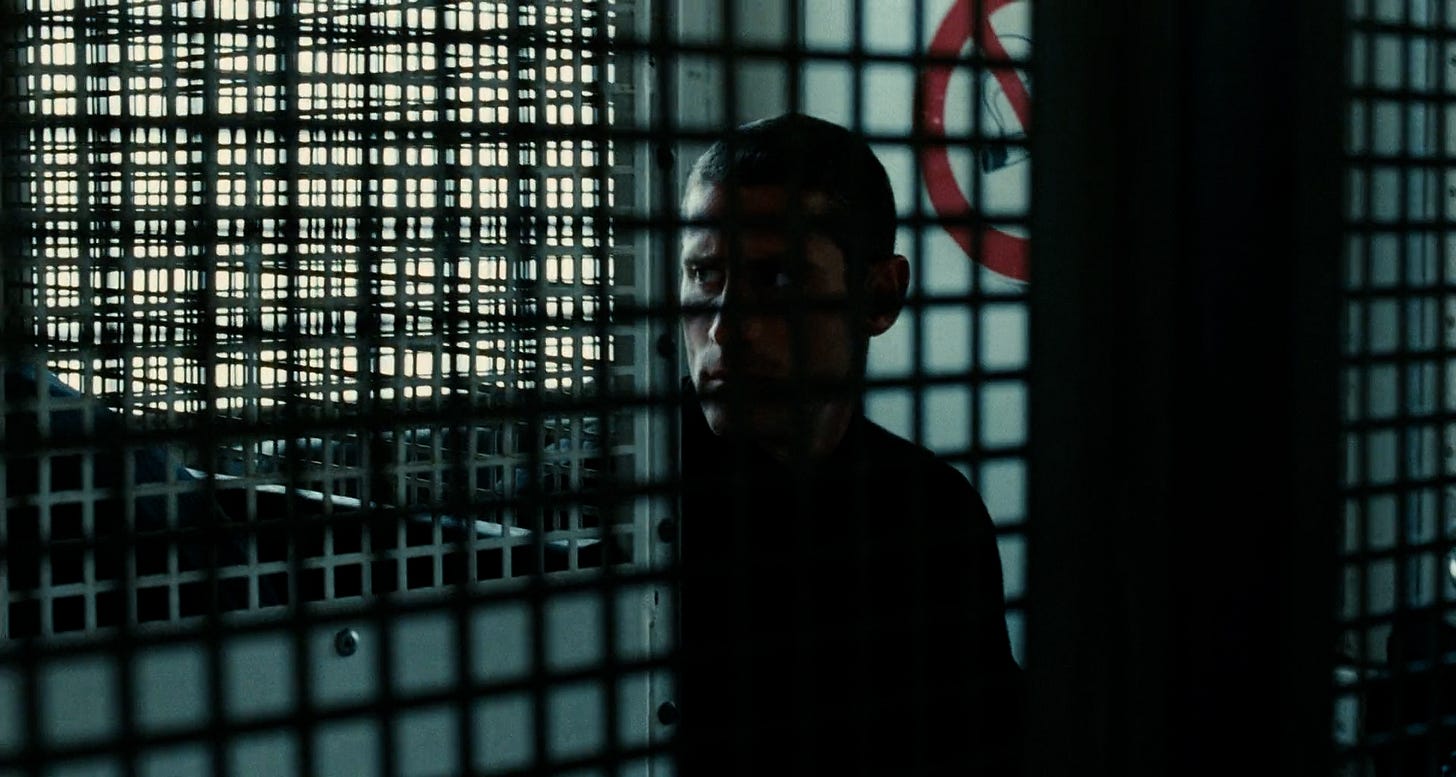
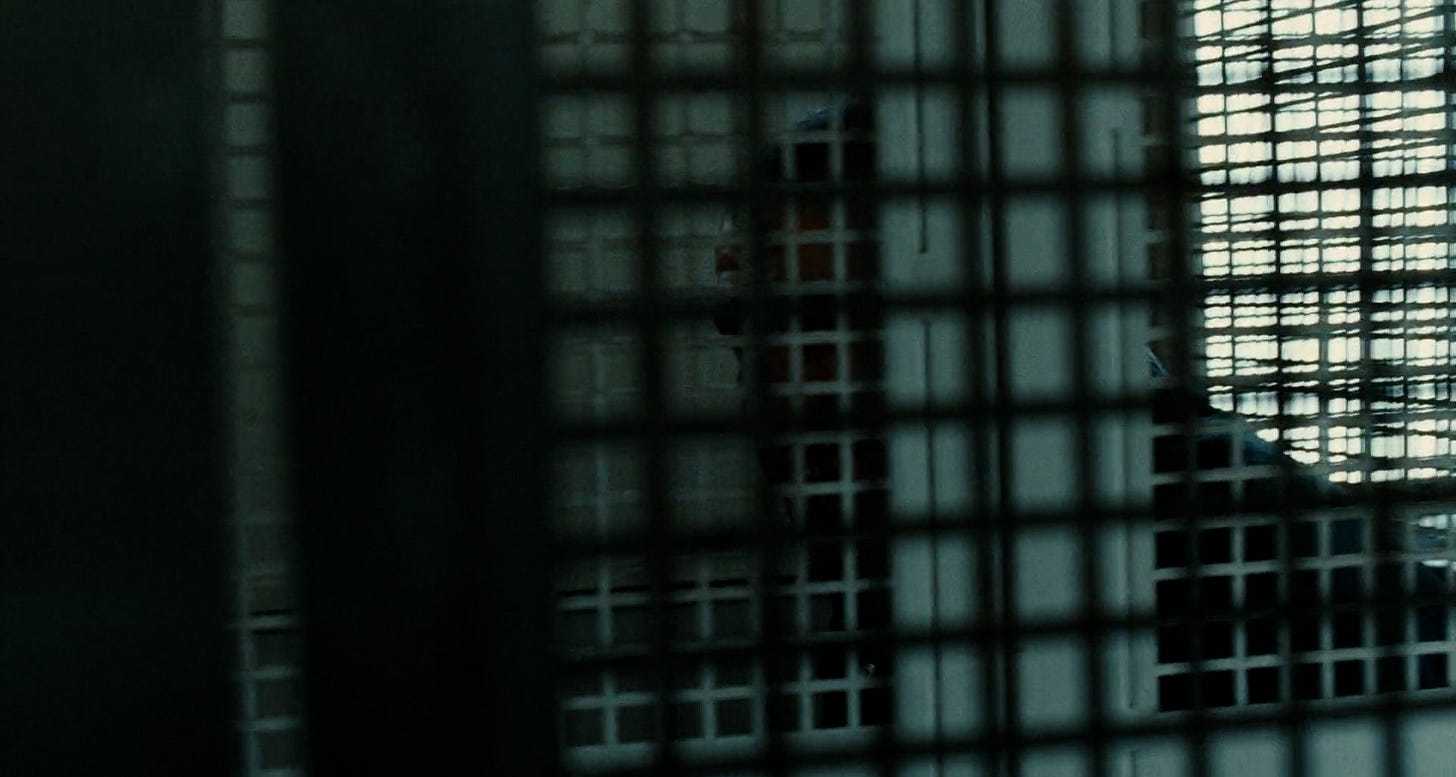
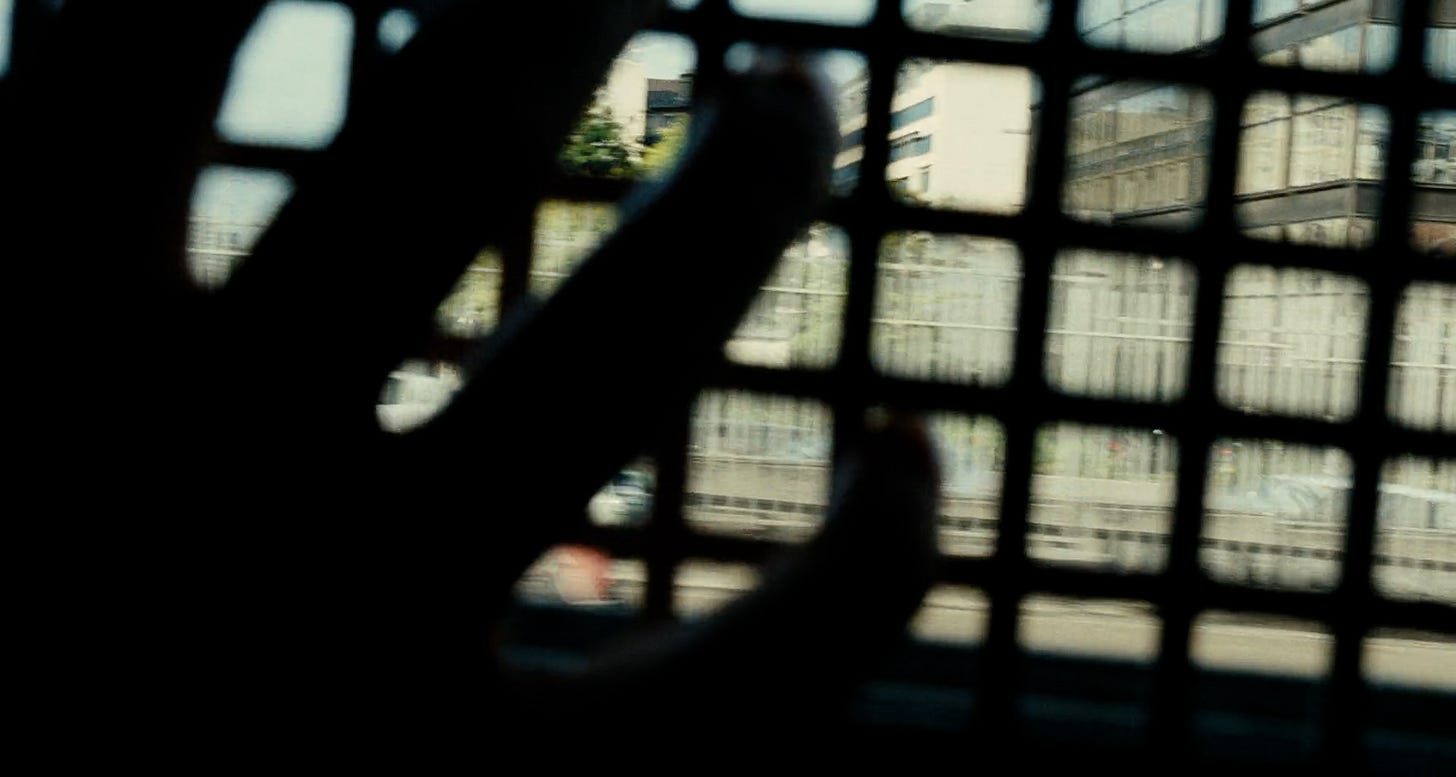
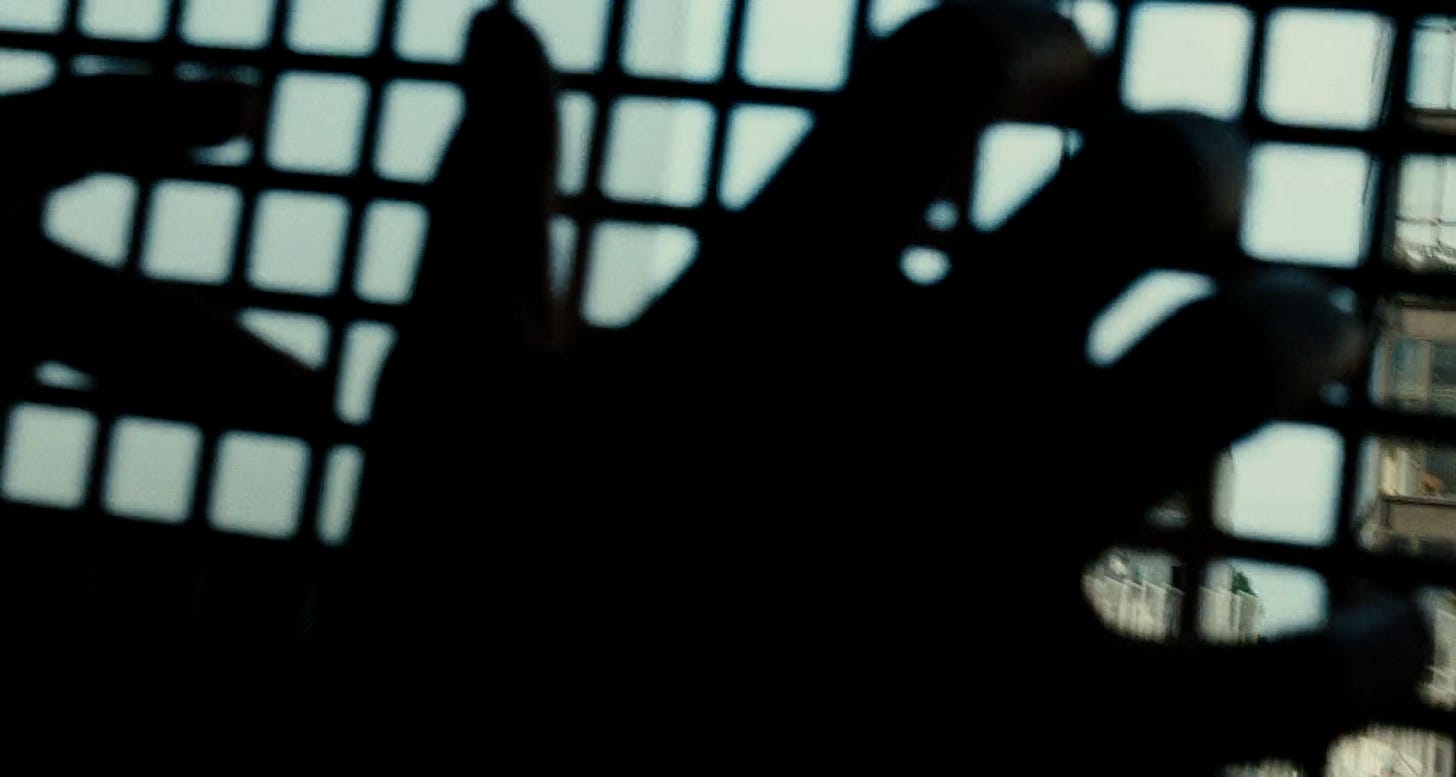

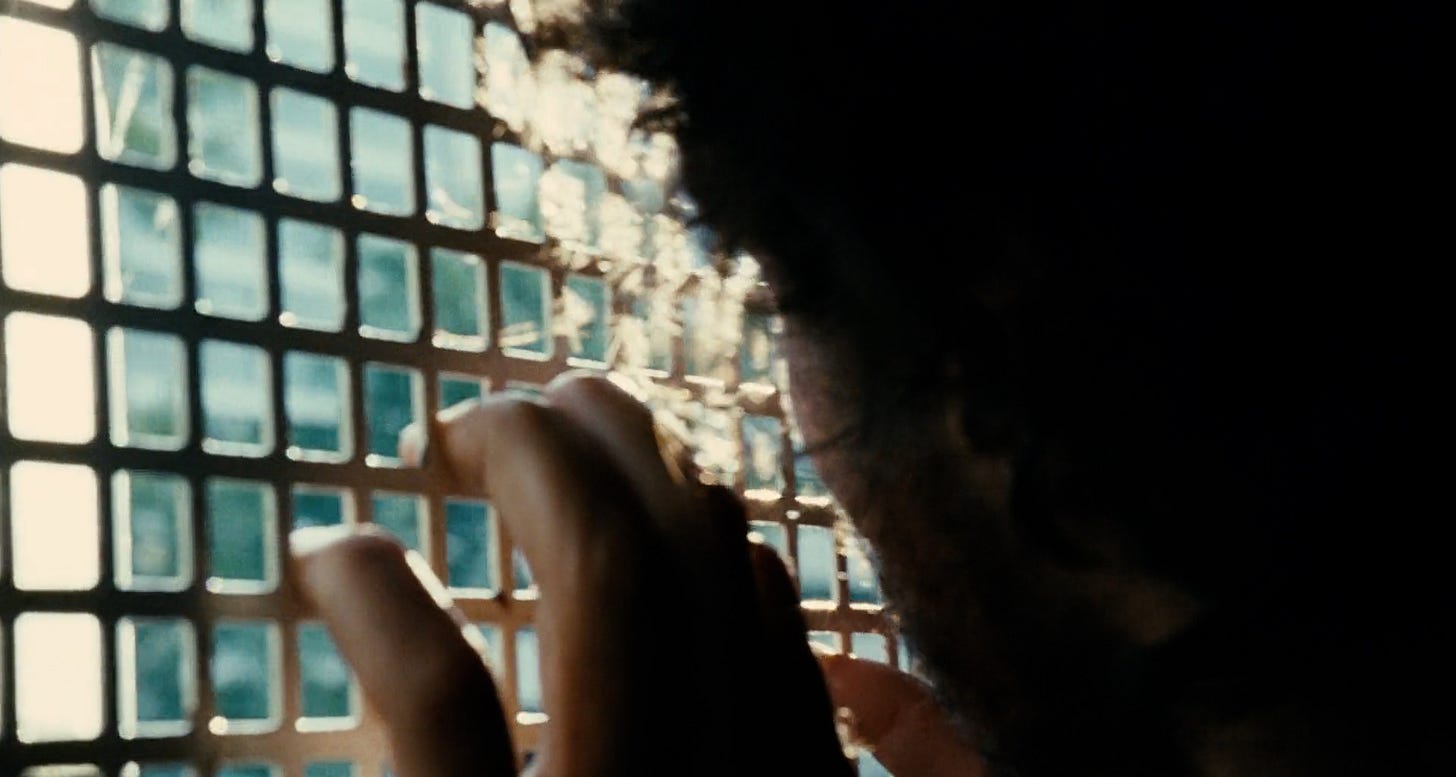
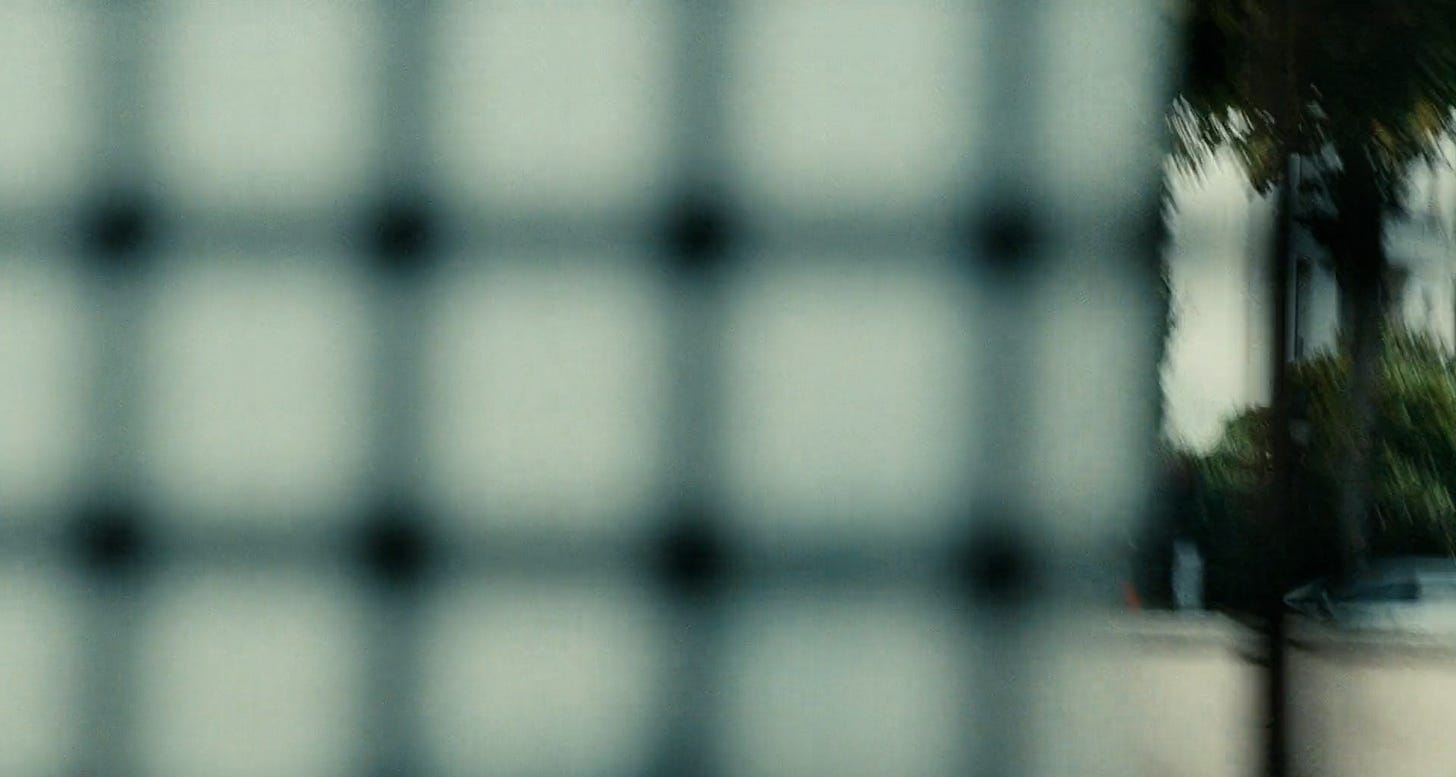


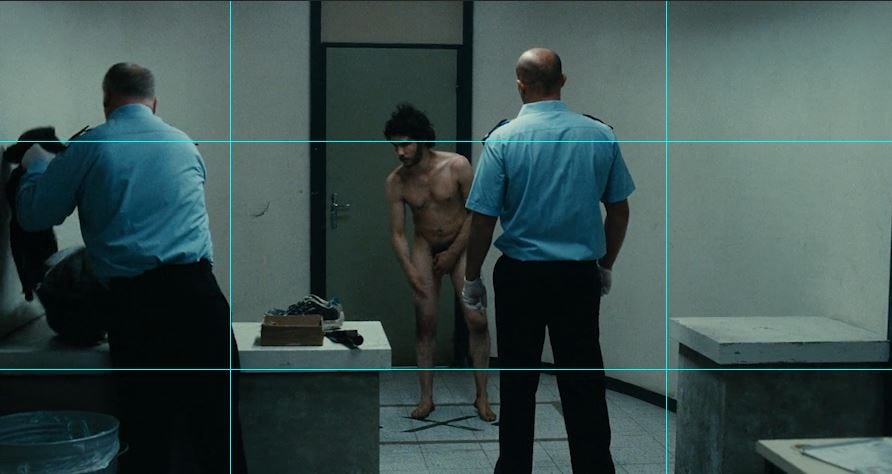
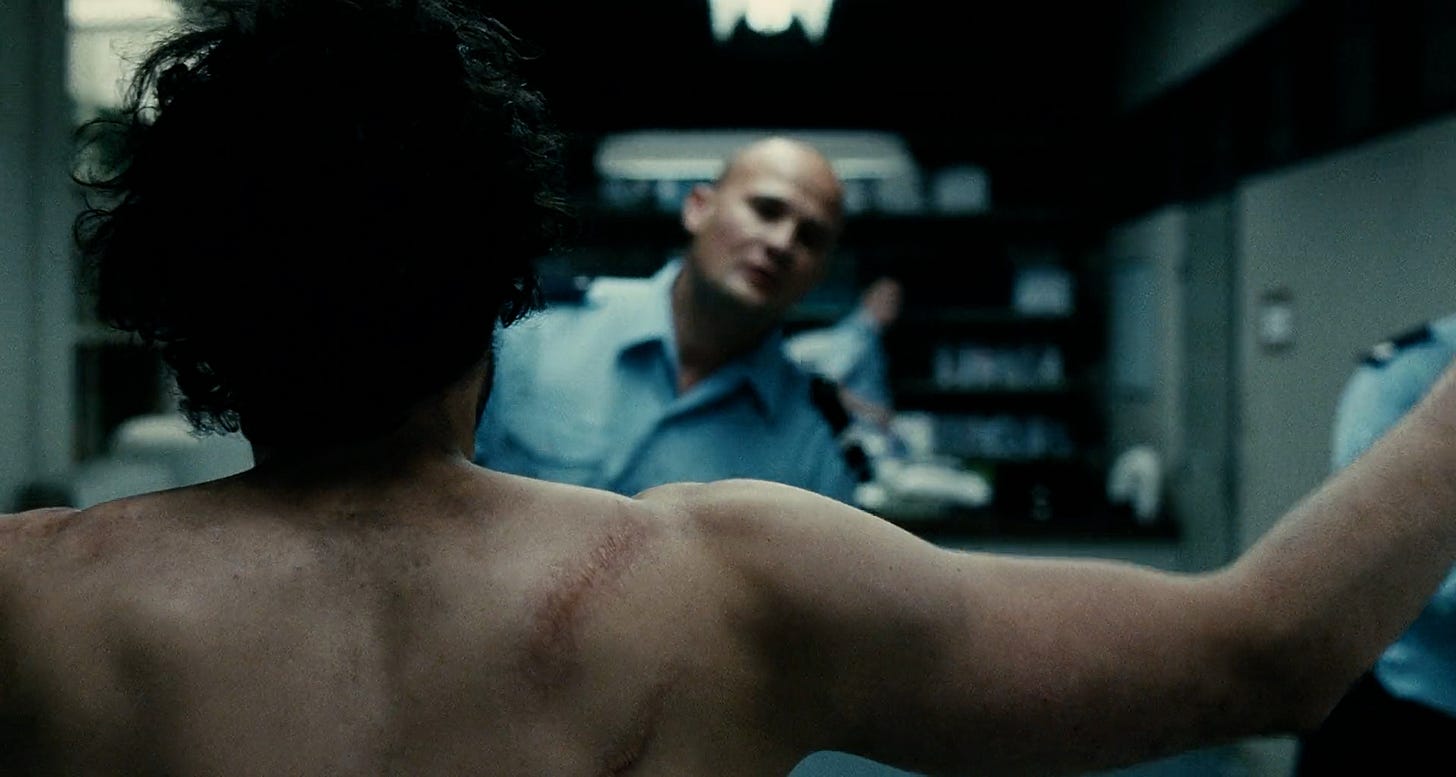


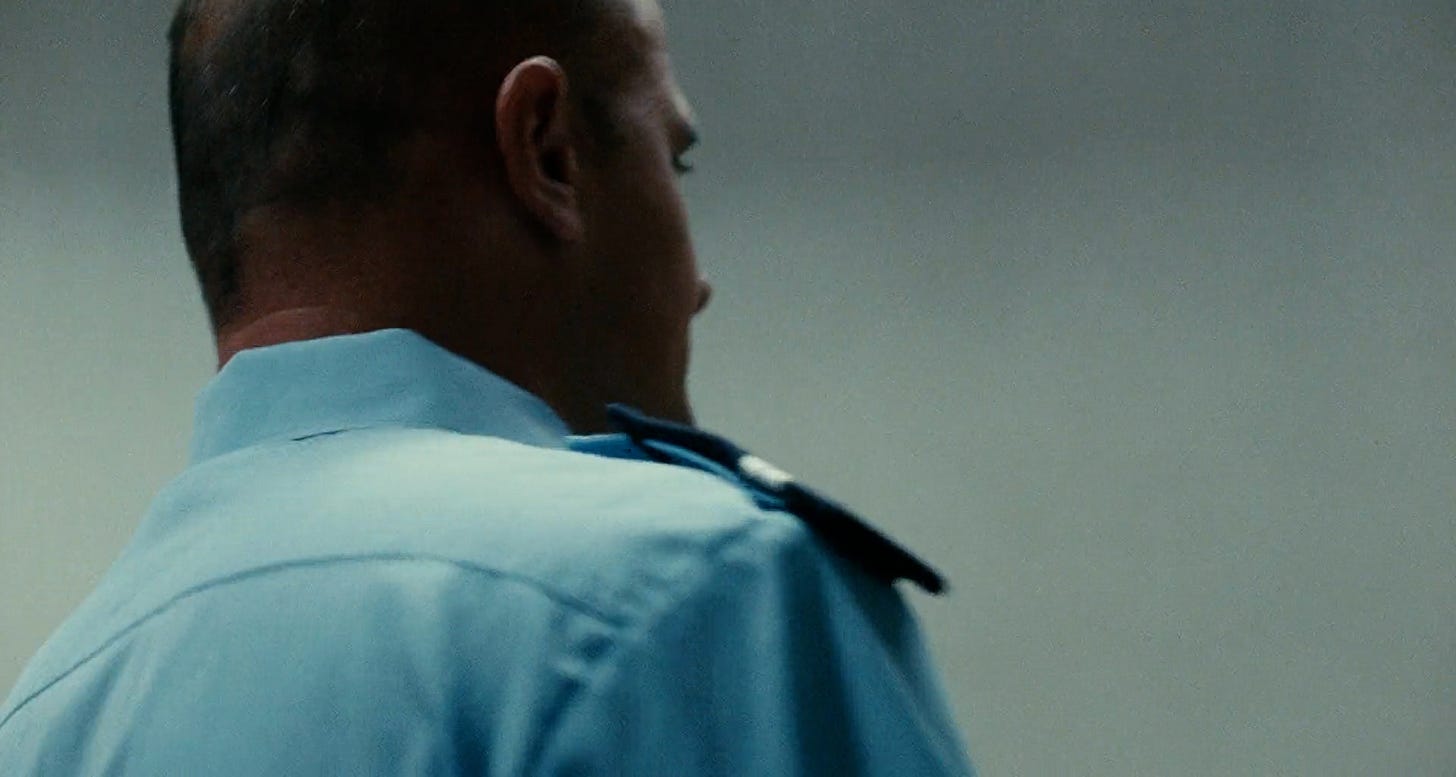
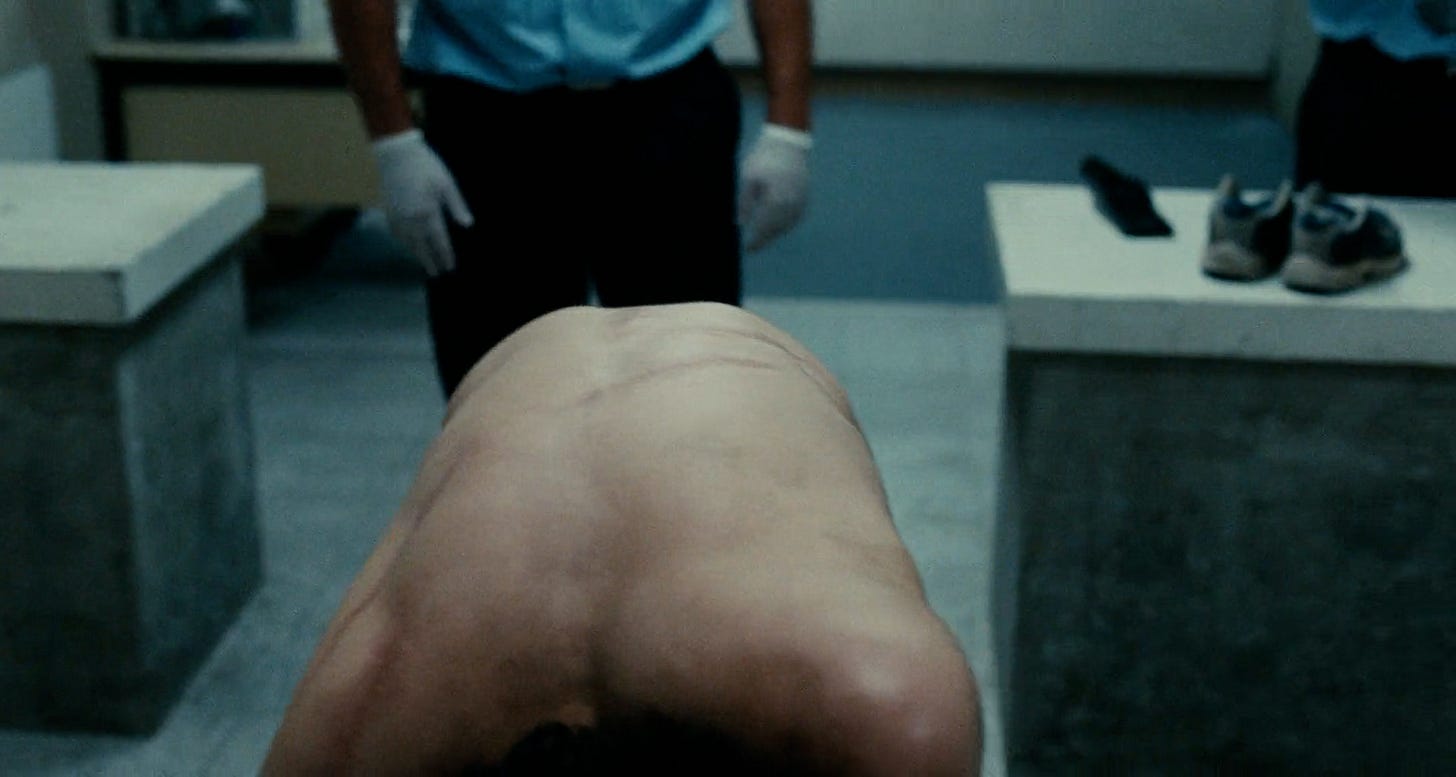
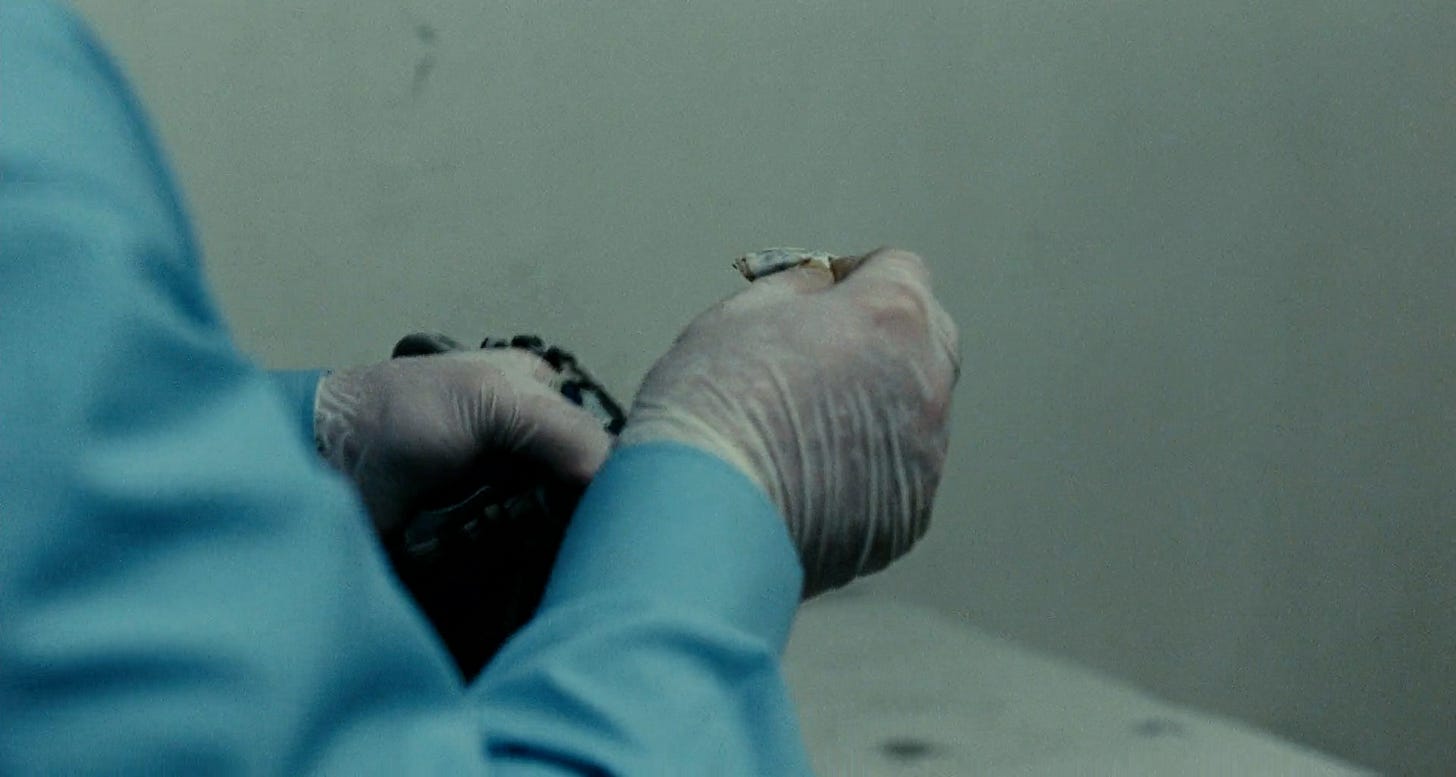
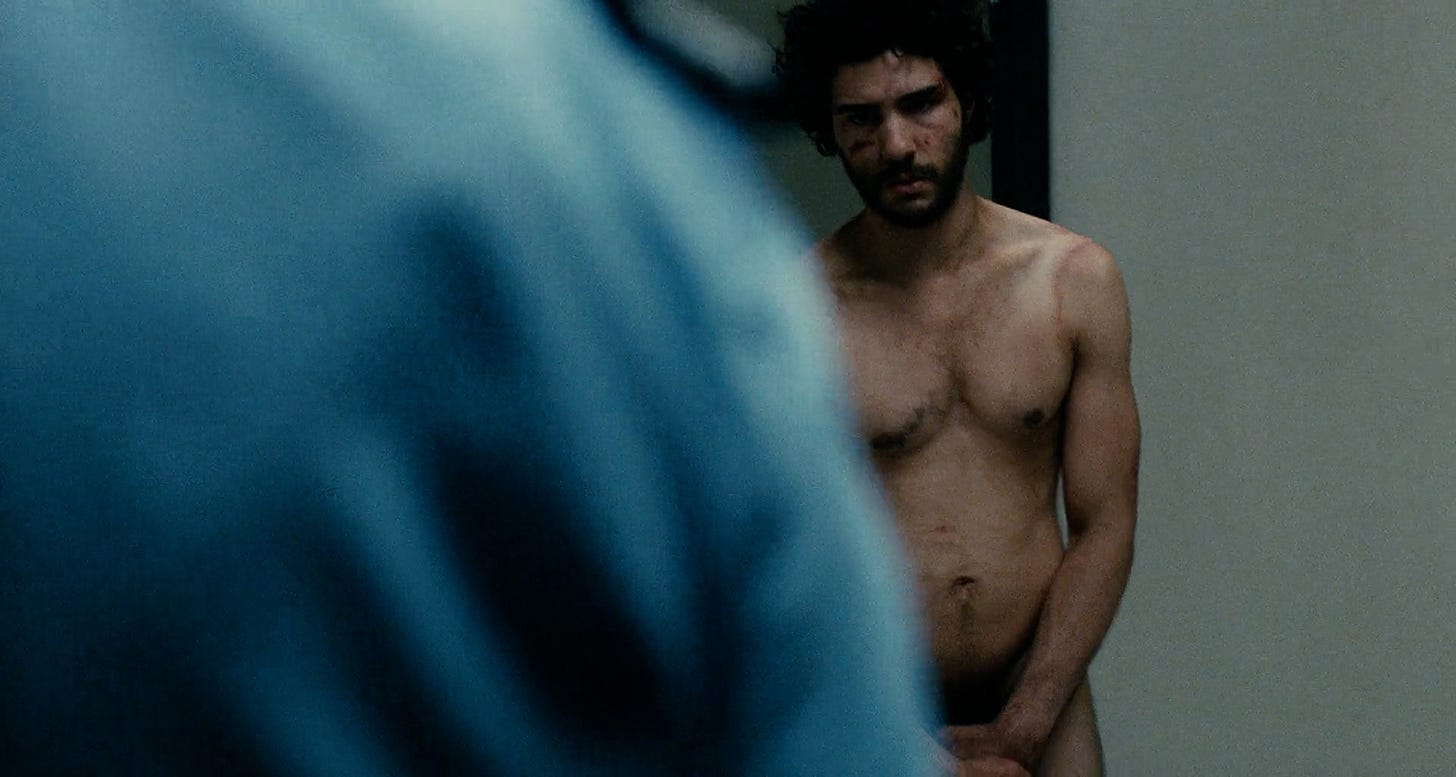
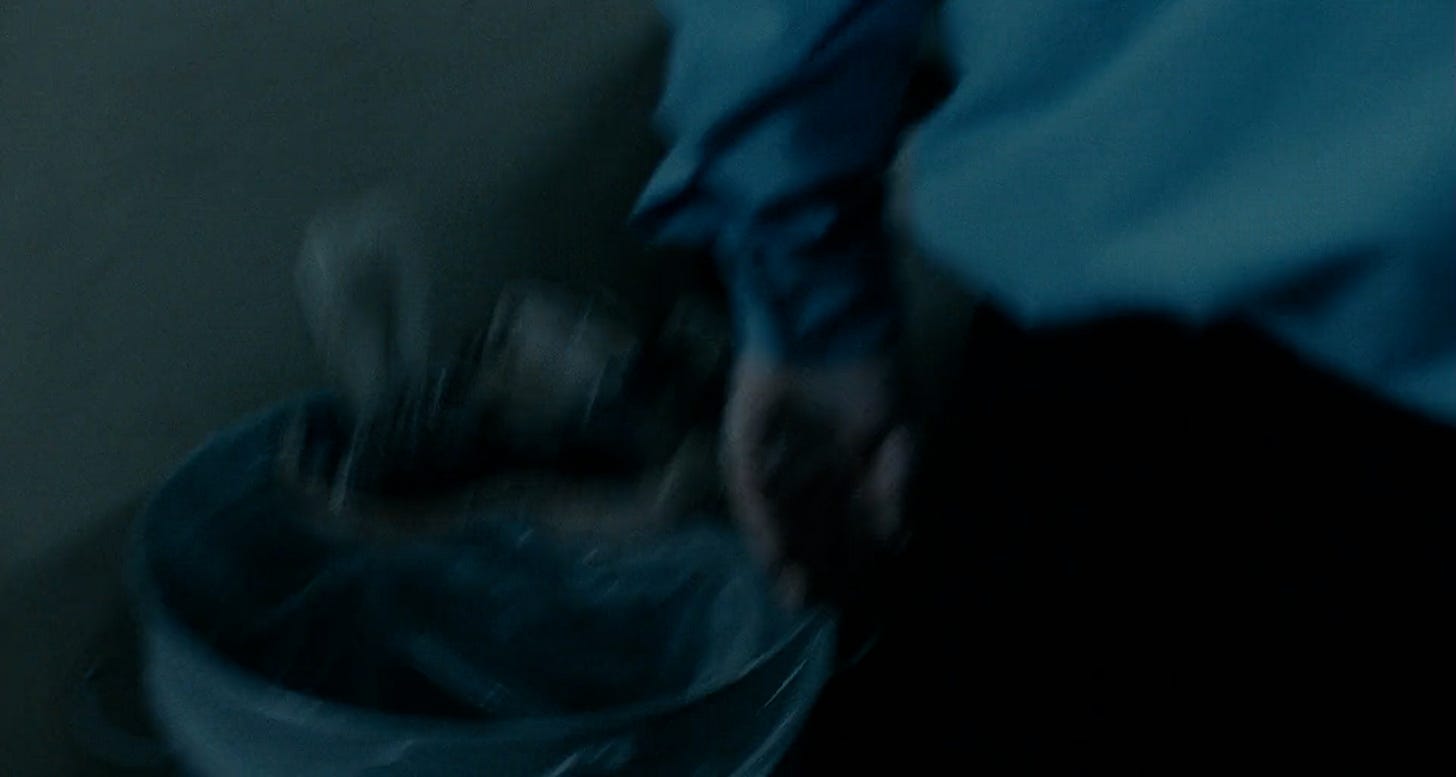
I absolutely love your film analysis. Thank you
At the beginning of the scene I immediately felt the character's desperation, loneliness and anguish, which she tries to deal with by nervously manipulating the banknote. I think this part is a metaphor for society's consumerism, which uses money as a way of dealing with emotions. As for the police station, what struck me was the character's complete helplessness with her naked genitals (a metaphor for the lack of intimacy and the exposure of individuality, which are also commonplace in our society).
I think the whole scene is an excellent metaphor for today's societies, where consumerism, loneliness and detachment from oneself are sources of anguish, despair, helplessness and internal conflicts.
I'd like to see the film "Dheepan" by
Jacques Audiard
What a brilliant walkthrough into this scene. I have never watched this movie but the lead actor is an actor who always strikes me for his presence in scenes. I will give it a go.
Some ideas of movies:
🔸️"Pourquoi tu pleures ?" By Katia Lewkowicz
🔸️"Jude, the Obscure" by Michael Winterbottom
🔸️"Drive my car" by Ryūsuke Hamaguchi
Bonne Pioche 💡